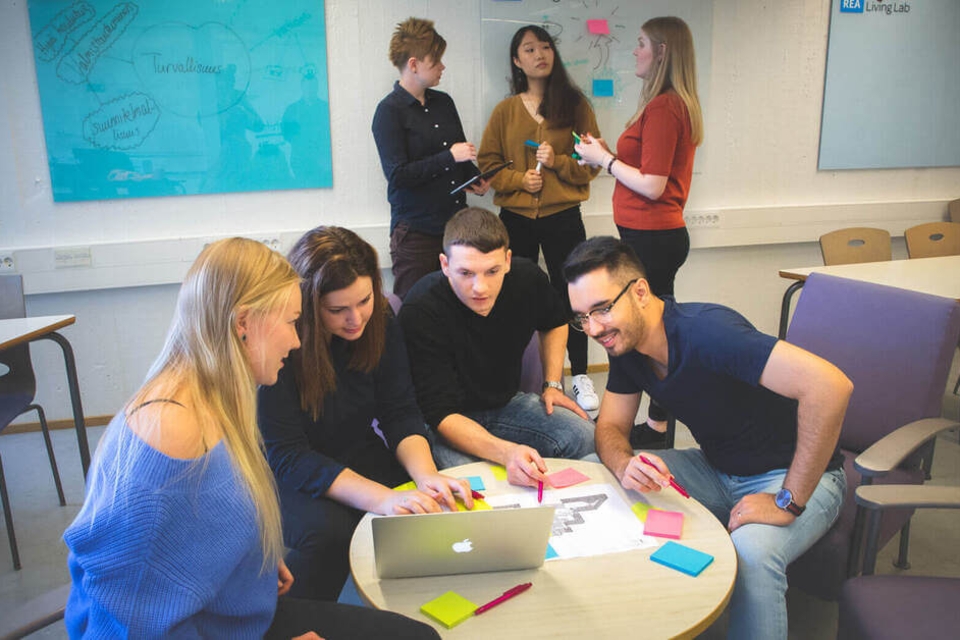Master’s thesis: Exploring how governments can apply user-centred design to address complex challenges
Master’s Thesis by Jeffrey Allen developed new public value and open policymaking frameworks to show how governments can apply user-centred design to policymaking to address complex challenges more effectively.

Governments are tasked with addressing the most complex challenges the world faces, from reducing the rate and impact of crime on communities to educating children and healing the sick. A Master’s Thesis recently completed at Laurea University of Applied Sciences has developed new public value and open policymaking frameworks to show how governments could apply user-centred design to policymaking to address complex challenges like these more effectively.
Working with the Ministry of Justice in the United Kingdom, the author Jeffrey Allen analysed how one team of digital delivery specialists has worked with policymakers for the past three years to apply user-centred design methods to their work and begin to instil user-centred design mindsets across the policymaking profession.
The author worked with the team to develop a Theory of Change and Roadmap of activities intended to further embed user-centred design practices into the policymaking profession over the coming years. While the action research conducted and the thesis recommendations were tailored to this particular team, the overall findings will be relevant to those working in policymaking at any other government ministry or agency, at any level, in the United Kingdom or beyond.
Generating public value
Policymaking is government’s way of determining how society’s problems will be addressed. The results of the policymaking process set the conditions for private companies, non-profit organisations, and government agencies to deliver all the services that people engage with to achieve their goals.
The public value framework developed in the thesis project builds on existing academic research and the author’s work in government to argue that, when people can contribute less of their own money, effort or time in order to achieve their goals, the government’s policies can be said to be contributing more public value.
Addressing ‘wicked problems’
The thesis also argues that some service delivery and all policymaking happens in complex contexts, or what some academics have called the domain of “wicked problems”. Complex or wicked problems have unlimited potential solutions, and are continuously changing. Any solution to a complex problem will have waves of consequences that impact countless people, organisations, and issues over a virtually limitless period of time.
Academics and business professionals have argued that, in those types of complex situations, leaders cannot know with any certainty which course of action will be most effective to solve the problems their organisations face. The most effective approach in situations like those is, rather, to continually probe the problem space, sense how things change, and respond to those changes. The author has developed the following framework to show how government policymaking happens in the domain of complex problems and can thus benefit from the probe-sense-respond approach of user-centred design.
Towards Open Policymaking
The thesis draws on nearly two years of participatory action research to develop a framework for how policymakers could apply user-centred design to unlock and combine different sources of knowledge, involve more diverse stakeholders in the development of public policy, and test and refine potential solutions. The Open Policymaking Framework is shown below as both a journey map for policymakers and a process diagram.
A Theory of Change is developed as well, arguing for a top-middle-bottom approach to embedding user-centred design (or “Open Policymaking”) more systematically within the policymaking profession of the Ministry of Justice.
Background
The key findings of this Master’s Thesis emerged through a case study in the UK during 2018 and 2019. The author works for the UK Ministry of Justice (though the findings are his alone) and studied at Laurea University of Applied Sciences between 2016 and 2019.
Master's Thesis is accessible through THESEUS.
Further information
Jeffrey Allen
MBA in Service Innovation and Design
jallen300@gmail.com